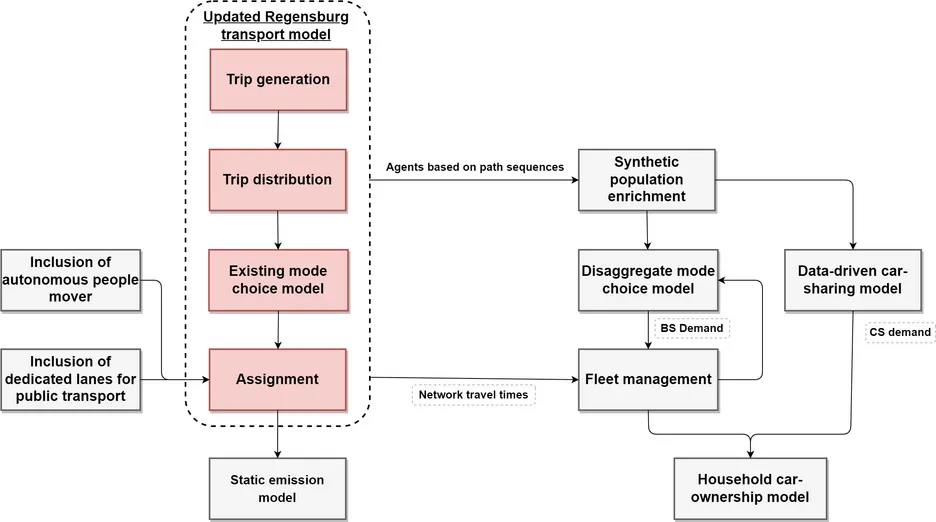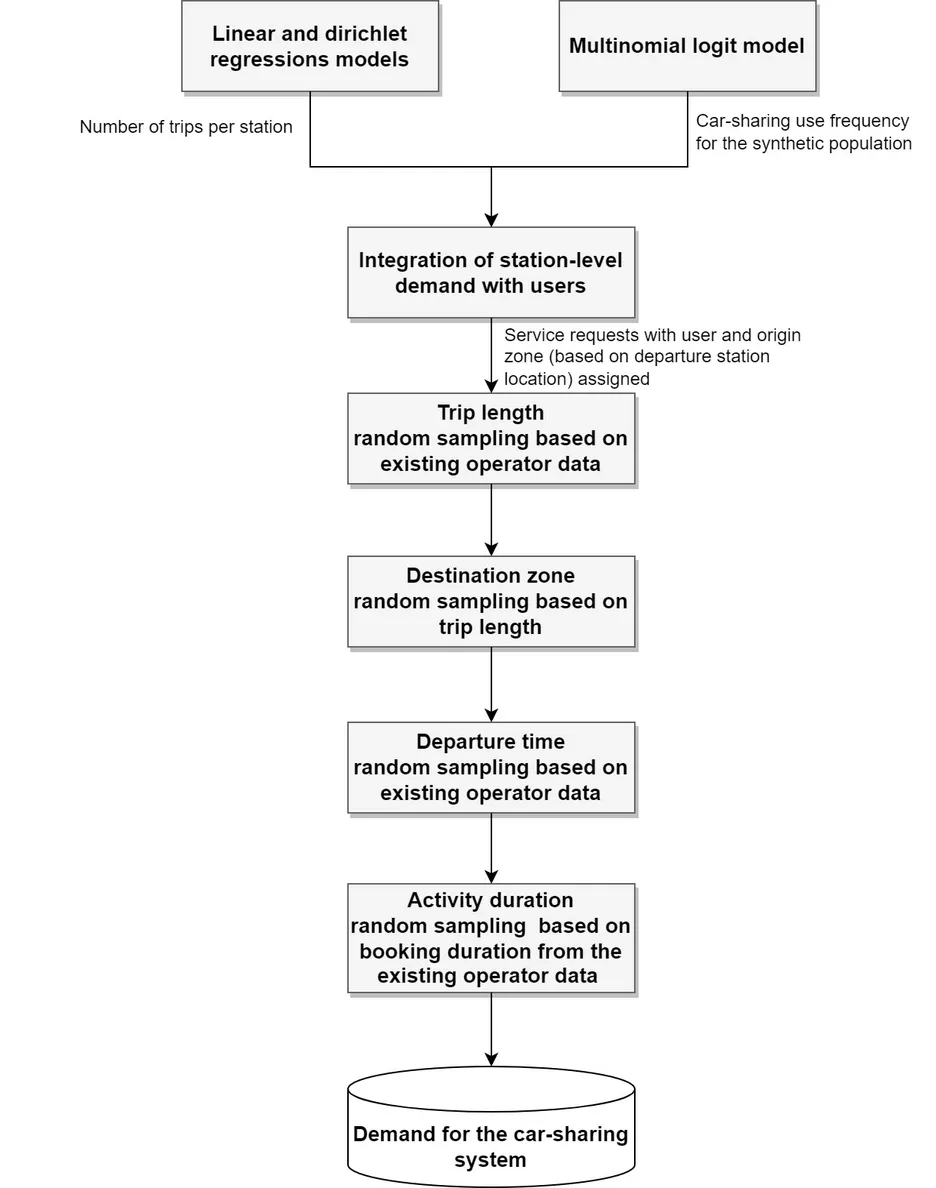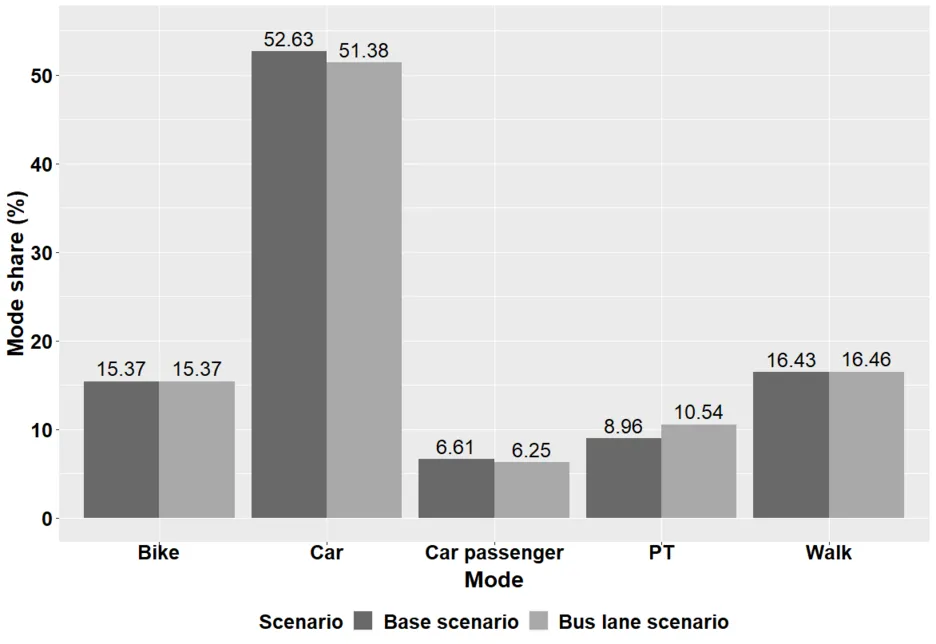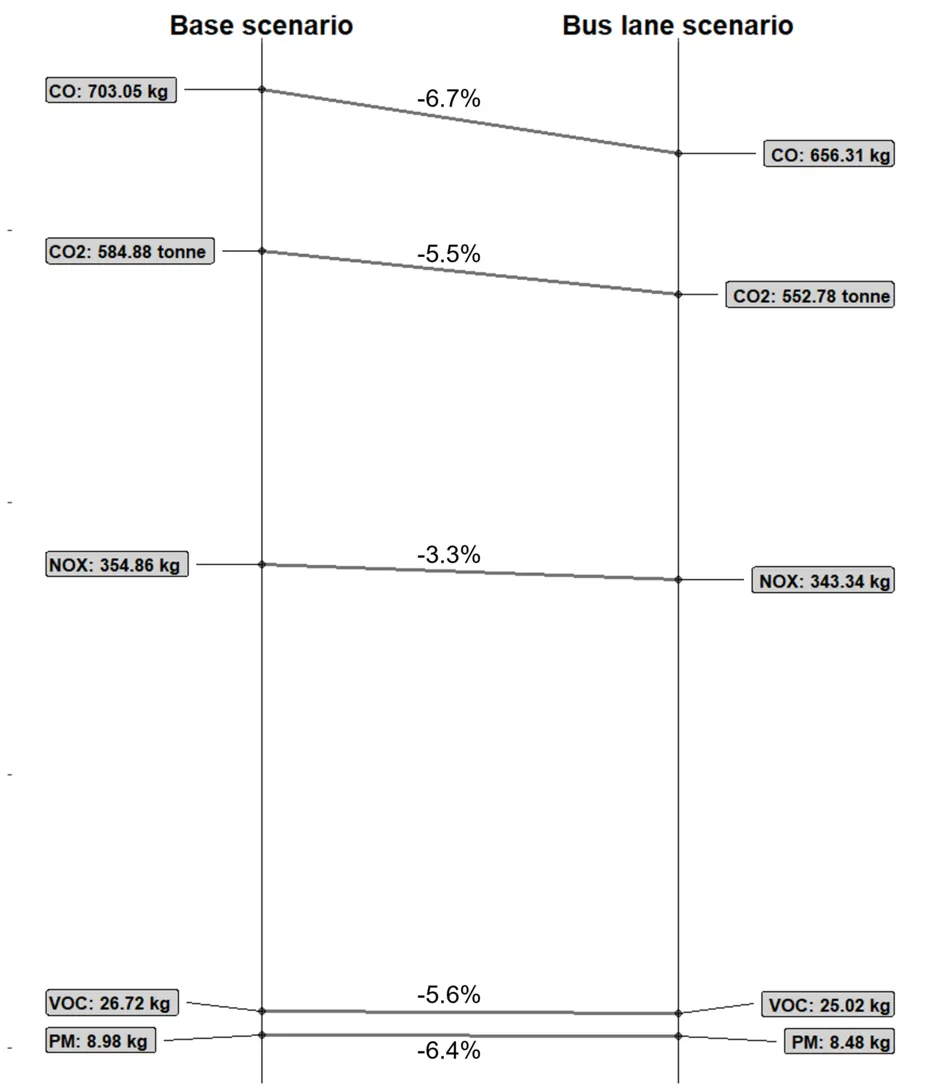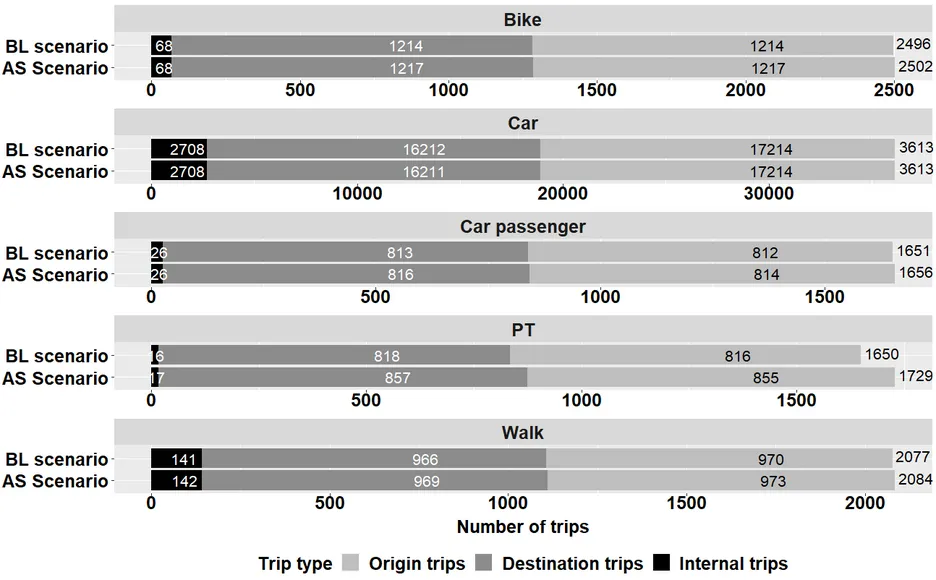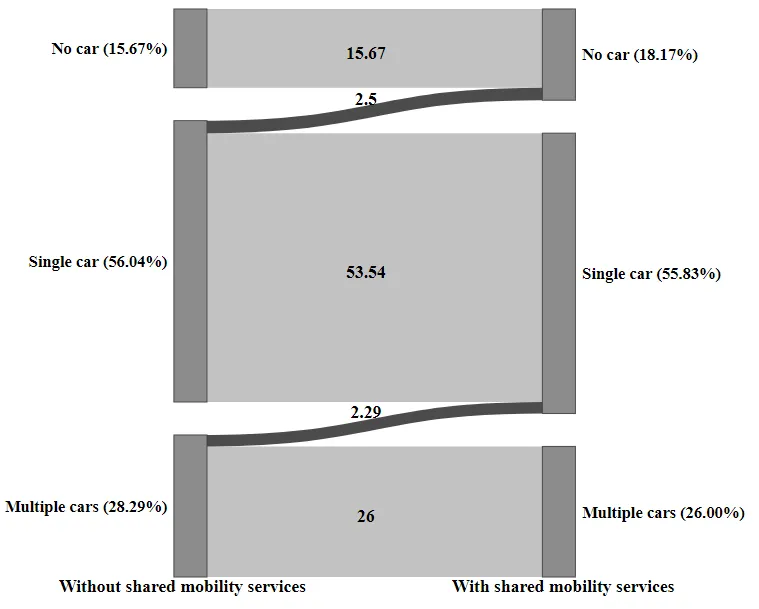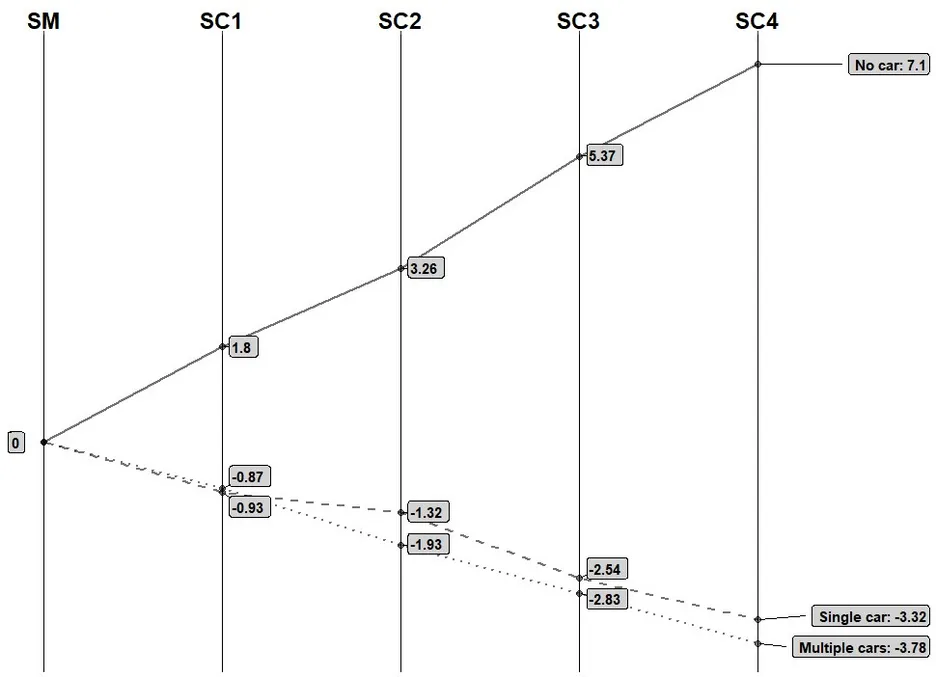MOMENTUM - H2020

Modelling Emerging Transport Solutions for Urban Mobility
Duration: May 2019 - April 2022
MOMENTUM project focused on the development of a set of new mobility data analysis methods, transport models and decision support tools to support local authorities in European cities, to design right policy mix to exploit the full potential of emerging mobility solutions. New data sources (such as smart card data and mobile phone data) and emerging data-driven methodologies are exploited in this project. The project comprises of six stages namely, 1) Conceptual framework and problem definition, 2) Data collection and analysis, 3) Modelling of emerging mobility solutions, 4) Simulation, impact assessment and decision support toolset, 5) Policy assessment and 6) Guidelines and recommendations. The project contributed on three main areas: 1) Analysis of travel behaviour, 2) Modelling of new transport solutions and 3) Policy instruments for mobility planning. Project includes case studies on Regensburg, Madrid, Thessaloniki and Leuven.
Contact points: MSc. Santhanakrishnan Narayanan, Prof. Dr. Constantinos Antoniou
- Empresa Municipal de Transportes de Madrid (Spain)
- Nommon Solutions and Technologies, S.L. (Spain)
- Dimos Thessalonikis (Greece)
- Ethniko Kentro Erevnas Kai Technologikis Anaptyxis (CERTH) (Greece)
- Stad Leuven (Belgium)
- Transport & Mobility Leuven NV (Belgium)
- Stadt Regensburg (Germany)
- Chair of Transportation Systems Engineering, Technische Universitaet Muenchen (Germany)
- Aimsun SL (Spain)
- Polis - promotion of Operational Links with Integrated Services, association internationale (Belgium)
- Union Internationale des Transports Publics (UITP) (Belgium)
- Universidad de la Iglesia de Deusto Entidad Religiosa (Spain)
The project includes collaboration with the University of California (Berkeley, USA) and the Department of Transport of Xianshang and the University of Ningbo (China) for the exchange of research results and the joint organisation of research activities on the planning and modelling of innovative transport solutions.
More information can be found on the project's website.
Our chair, represented by Santhanakrishnan Narayanan, was part of work packages 1-6 and 8. Specifically, we coordinated and led the core technical work package (WP4: Modelling of emerging mobility solutions). Major contributions from us include a new transport modelling approach called the intermediate modelling approach, multiple standalone models for estimating household car-ownership and demand for shared mobility services, and a case study on the historical city of Regensburg. In addition, we supported the application of the intermediate modelling approach in the cities of Madrid (Spain), Leuven (Belgium) and Thessaloniki (Greece). Furthermore, we contributed to the development of a three-level decision support tool, aimed towards the implementation of shared mobility services in cities.
Our major technical contributions are enlisted below:
- The intermediate modelling approach
A new transport modelling approach, which adopts the disaggregate principles from the agent-based approaches and integrates the same with traditional aggregate four-step approach
Narayanan, S., Salanova Grau, J. M., Frederix, R., Tympakianaki, A., Masegosa, A. D., & Antoniou, C. (2022). Modelling of shared mobility services - An approach in between traditional strategic models and agent-based models. Journal of Intelligent Transportation Systems, Under revision.
- Disaggregate mode choice model
A generalized multinomial logit model, which considers conventional modes under a single alternative & distinguishes shared mobility services from conventional modes.
Narayanan, S., & Antoniou, C. (2022). Shared mobility services towards Mobility as a Service (MaaS): What, who and when? Under review. URL: https://papers.ssrn.com/abstract=4175398.
- Demand framework for small-scale shared services
A data-driven demand framework, to find demand for a small-scale car-sharing service (especially focusing on its initial stages) & characterise it users.
Narayanan, S., & Antoniou, C. (2022). Expansion of a small-scale car-sharing service: A multi-method framework for demand characterisation and derivation of policy insights. Journal of Transport Geography, 104 . doi:10.1016/j.jtrangeo.2022.103438.
- Household car-ownership
Multiple disaggregate and aggregate household car-ownership models, focusing on the cities of Regensburg, Madrid and Leuven, as well as city-agnostic generic models, especially with parameters to ascertain the impact of shared mobility services.
Narayanan, S., & Antoniou, C. (2022). A multilevel analysis on what is common (and not) across the cities when it comes to private car-ownership: Behavioural, policy and modelling insights. Under review. URL: https://papers.ssrn.com/abstract=4147622.
- Case study on Regensburg
Adapted and extended four-step model, focusing on the evaluation of dedicated bus lanes, an autonomous shuttle service for first-/last-mile and shared mobility services.
Narayanan, S., Arango, J. P. R., Frederix, R., Tympakianaki, A., & Antoniou, C. (2022). Can emerging mobility solutions complement public transport and lead to a sustainable future? Under review. URL: https://papers.ssrn.com/abstract=4219590.
- Other case studies
1) Case study on the city of Madrid (Spain)
Martin, I., Tympakanaki, A., Cantu-Ros, O. G., Burrieza-Galan, J., Casas, J., Narayanan, S., Ayfantopoulou, G., Antoniou, C., & Maleas, Z. (2023). Data-driven modelling and simulation evaluation of shared mobility services: A case study for bike-sharing in Madrid. In 102nd Annual Meeting of the Transport Research Board. Washington D.C.
2) Case study on Leuven (Belgium)
Vanherck, J., Narayanan, S., Frederix, R., Tympakianaki, A., Torrent, F., Antoniou, C., & Ayfantopoulou, G. (2022). Can carsharing reduce car ownership and emissions? an analysis based on an intermediate modelling approach. In C. Antoniou, F. Busch, A. Rau, & M. Hariharan (Eds.), Proceedings of the 12th International Scientific Conference on Mobility and Transport: Mobility Innovations for Growing Megacities A Springer book series Lecture Notes in Mobility
3) Development of a three-level decision support tool and a case study on Thessaloniki (Greece)
Salanova, J. M., Ayfantopoulou, G., Magkos, E., Mallidis, I., Maleas, Z., Narayanan, S., Antoniou, C., Tympakianaki, A., Martin, I., & Fajardo-Calderin, J. (2022). Developing a multilevel decision support tool for urban mobility. Sustainability, 14 , 7764. doi:10.3390/su14137764.
- Development of an intermediate modelling approach, to fill the gap between traditional strategic models and agent-based models.
- Disaggregate principles from agent-based approach is integrated with the traditional four-step approach, focussing on modelling emerging mobility services.
- Additional modules for emissions, car ownership and induced demand are included
- A proof of concept based on a case study on the city of Thessaloniki is presented
Publication: Narayanan, S., Salanova Grau, J. M., Frederix, R., Tympakianaki, A., Masegosa, A. D., & Antoniou, C. (2022). Modelling of shared mobility services - An approach in between traditional strategic models and agent-based models. Journal of Intelligent Transportation Systems, Under revision.
A few snapshots from the study
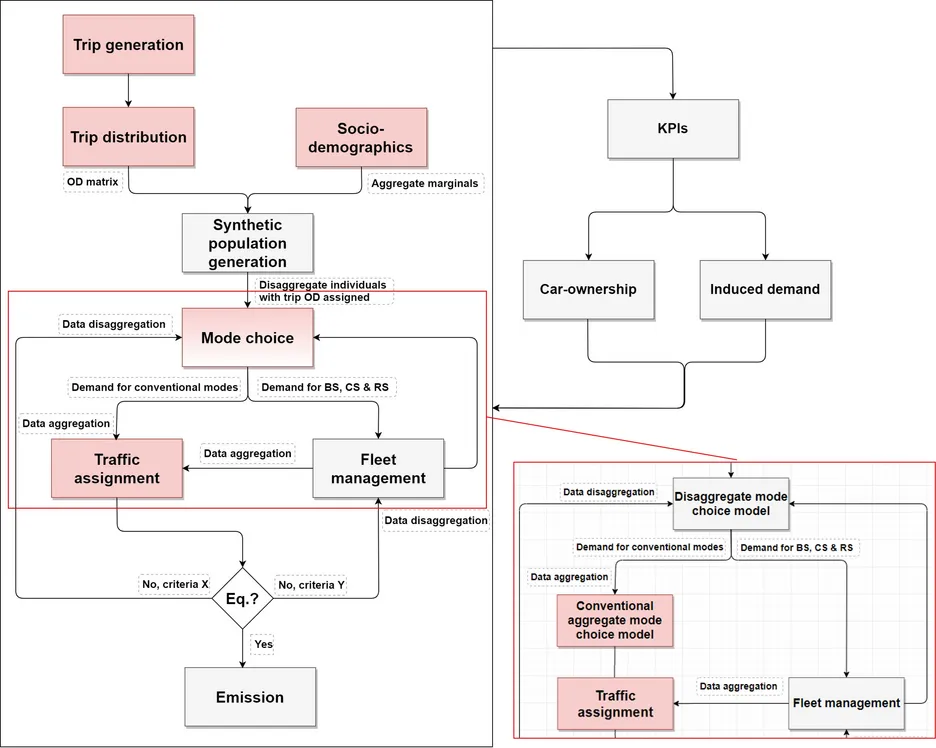
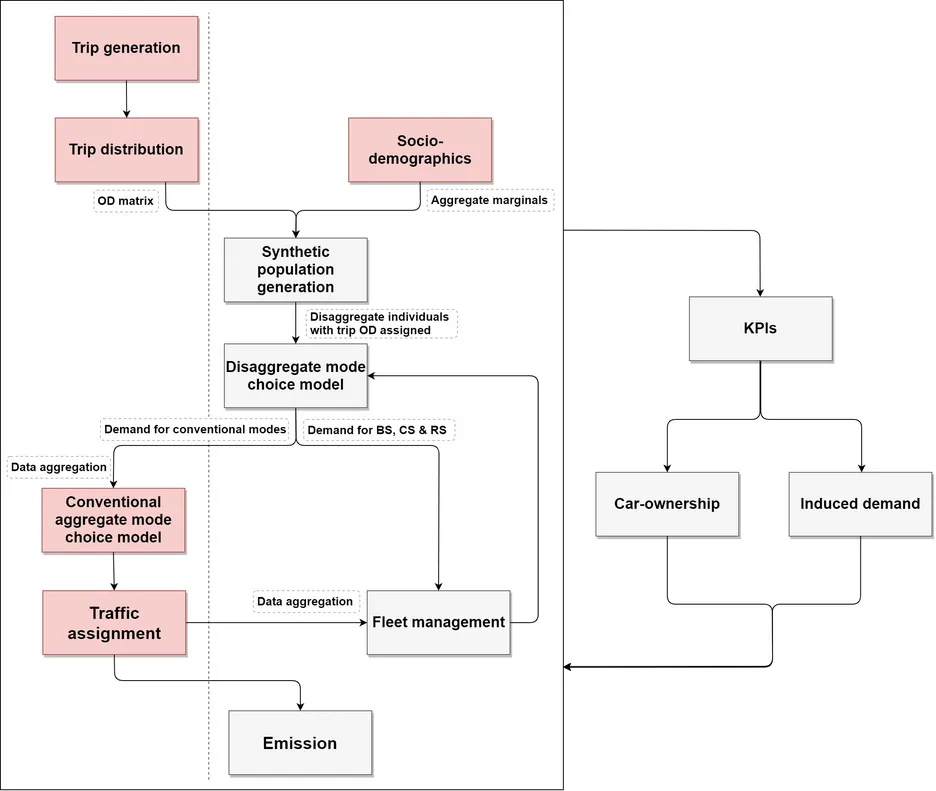

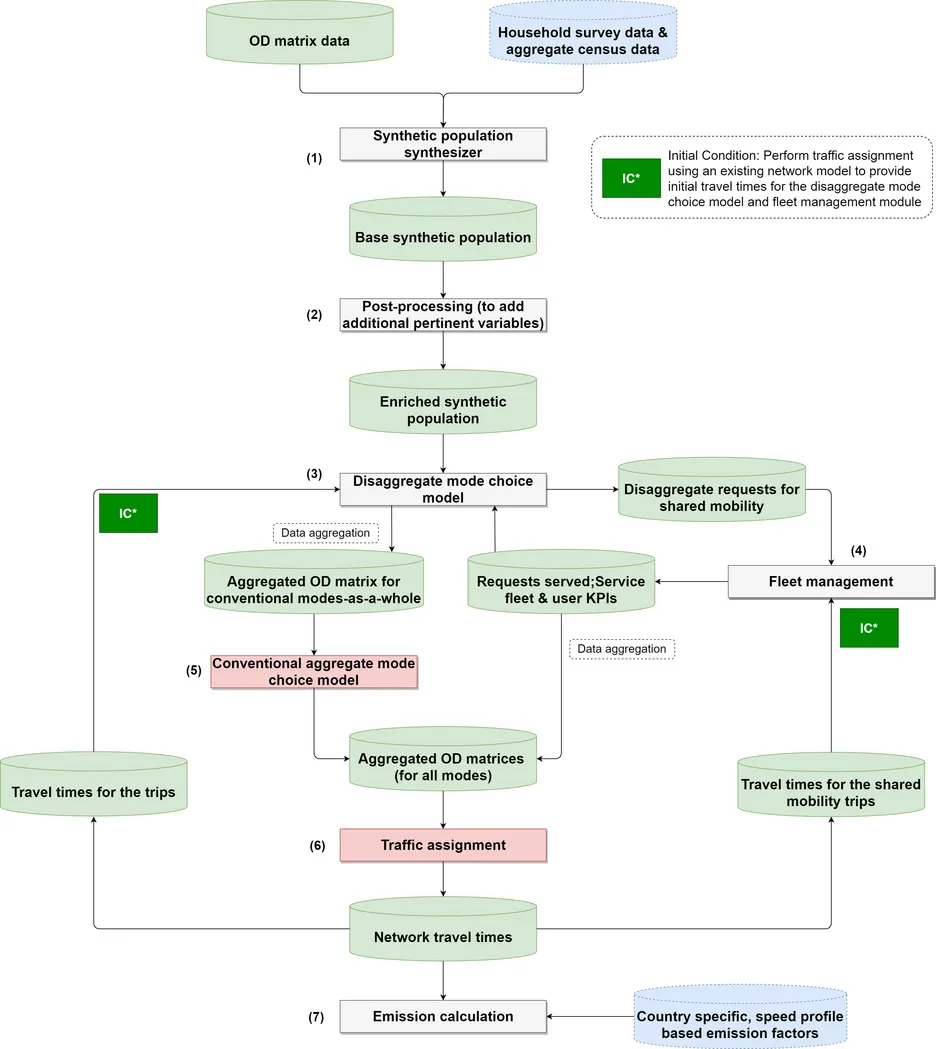
- Development of a disaggregate mode choice model that considers all the conventional modes under a single alternative and includes bike-sharing, car-sharing & ride-hailing
- Identification of distinct users & use of shared mobility, when compared to conventional modes
- Discussion on the integration of the mode choice model into the transport simulation systems
- Exploration of relevant policy measures for a sustainable implementation of shared mobility services
- Characterization of the probable demand segments, with a focus towards Mobility-as-a-Service (MaaS)
Publication: Narayanan, S., & Antoniou, C. (2022). Shared mobility services towards Mobility as a Service (MaaS): What, who and when? Under review. URL: https://papers.ssrn.com/abstract=4175398.
A few snapshots from the study
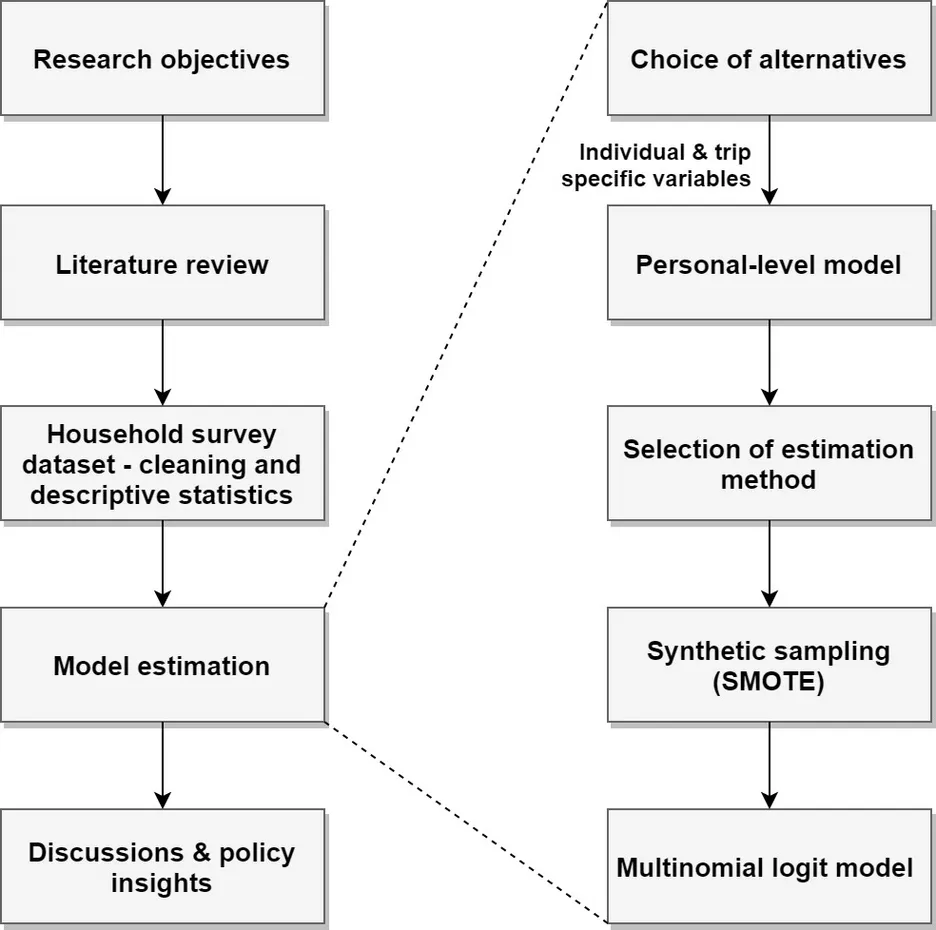

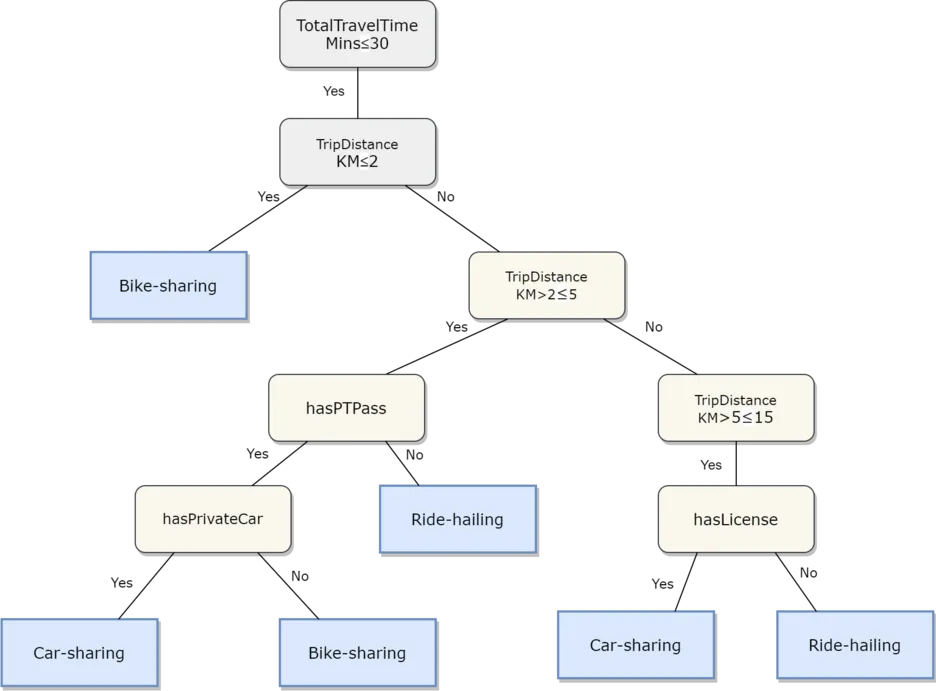
- Development of a data-driven demand model for a small-scale car-sharing service, focusing on its initial stages
- Combination of a linear regression, dirichlet regression and multinomial logit models
- Demand affected by supply, seasonal variations and days of a week
- Careful expansion of the service can improve transport equity and the accessibility of PT system
- Discussion on operational insights and relevant measures for the introduction of a MaaS package
Publication: Narayanan, S., & Antoniou, C. (2022). Expansion of a small-scale car-sharing service: A multi-method framework for demand characterisation and derivation of policy insights. Journal of Transport Geography, 104 . doi:10.1016/j.jtrangeo.2022.103438.
A few snapshots from the study
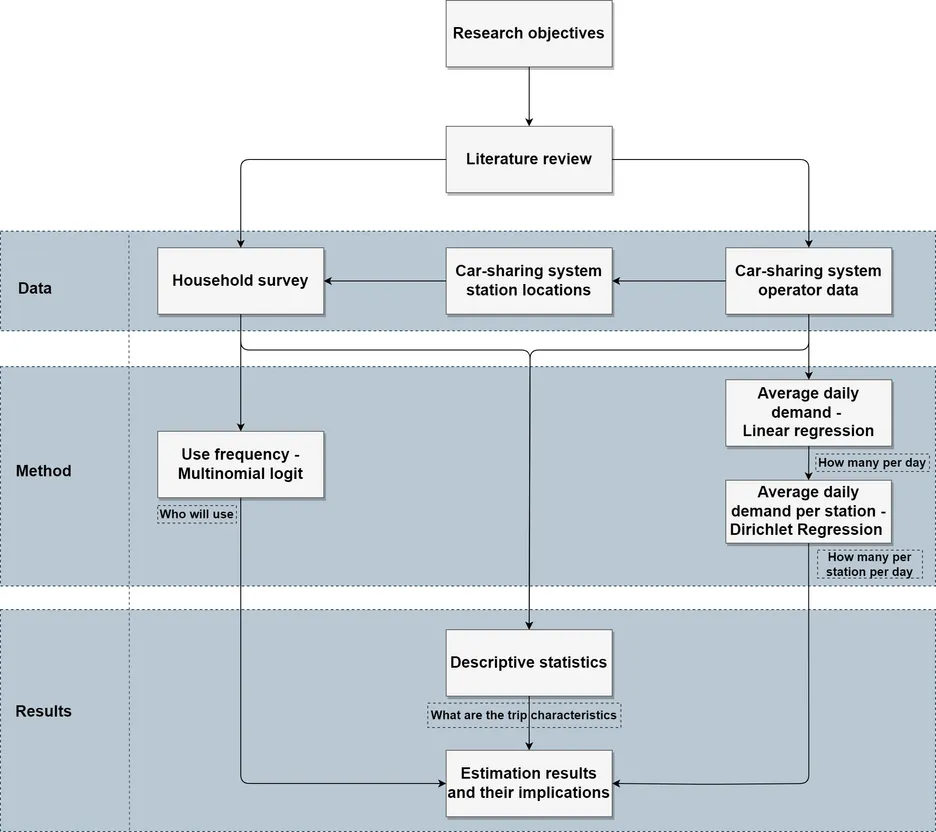
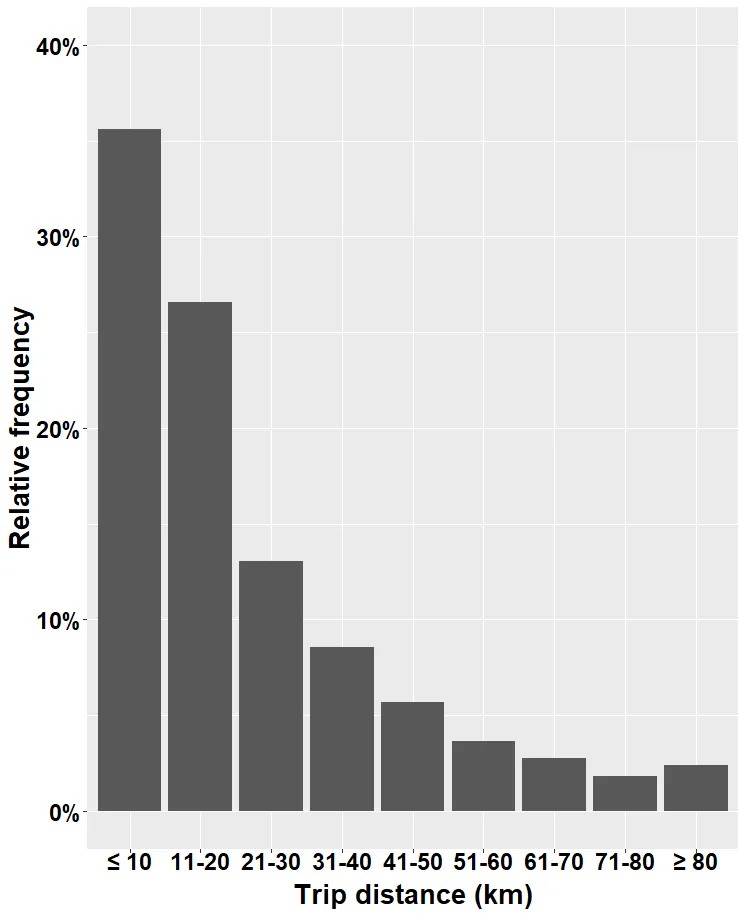
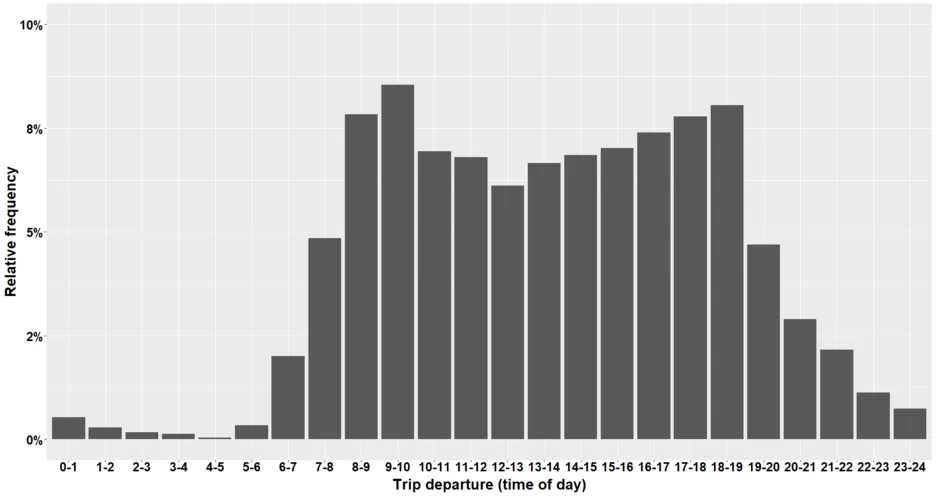
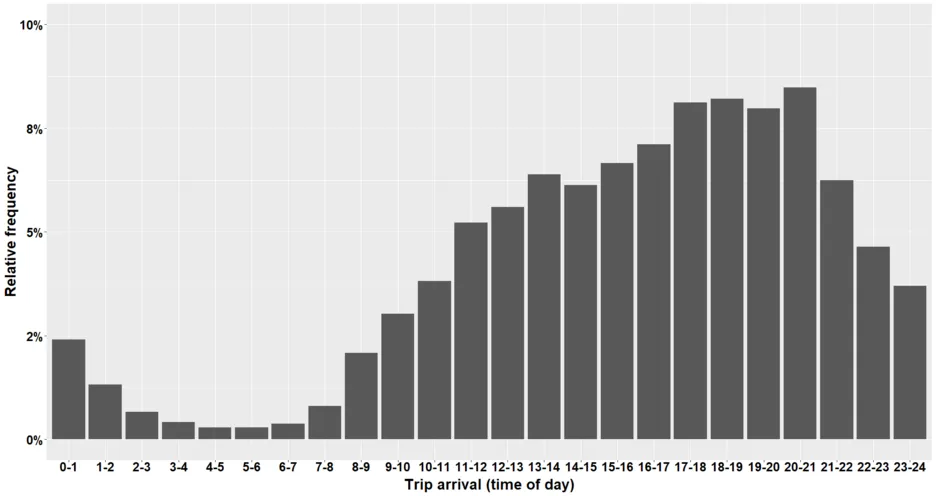
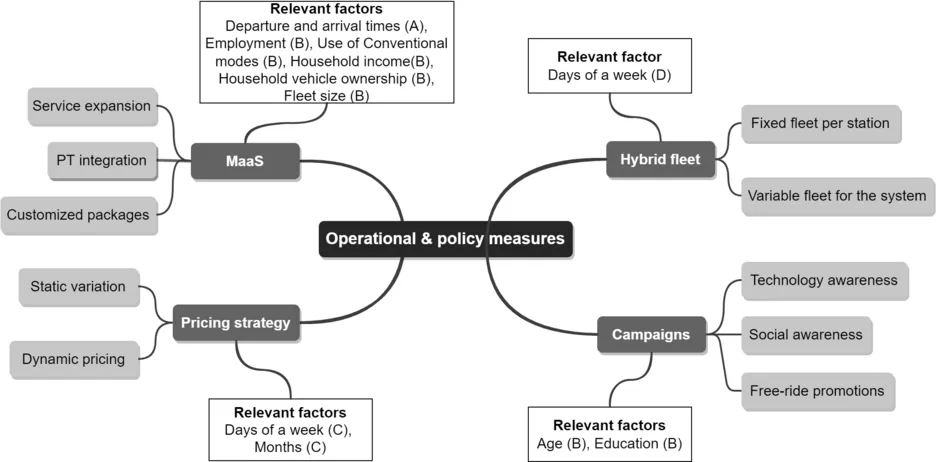
- Comprehensive analysis on household car-ownership through the integration of multiple data sources from multiple cities.
- Common factors exist across cities and different modelling levels, while disparity is also seen.
- Generic models have been developed and behavioural, policy and modelling insights are derived.
- Traditional explanatory variables (e.g., age) continue to influence private car-ownership.
- Cargo bikes can reduce car-ownership levels. Car-sharing has a greater influence than bike-sharing. Public parking spaces have a significant impact on single car-ownership.
Publication: Narayanan, S., & Antoniou, C. (2022). A multilevel analysis on what is common (and not) across the cities when it comes to private car-ownership: Behavioural, policy and modelling insights. Under review. URL: https://papers.ssrn.com/abstract=4147622.
A few snapshots from the study
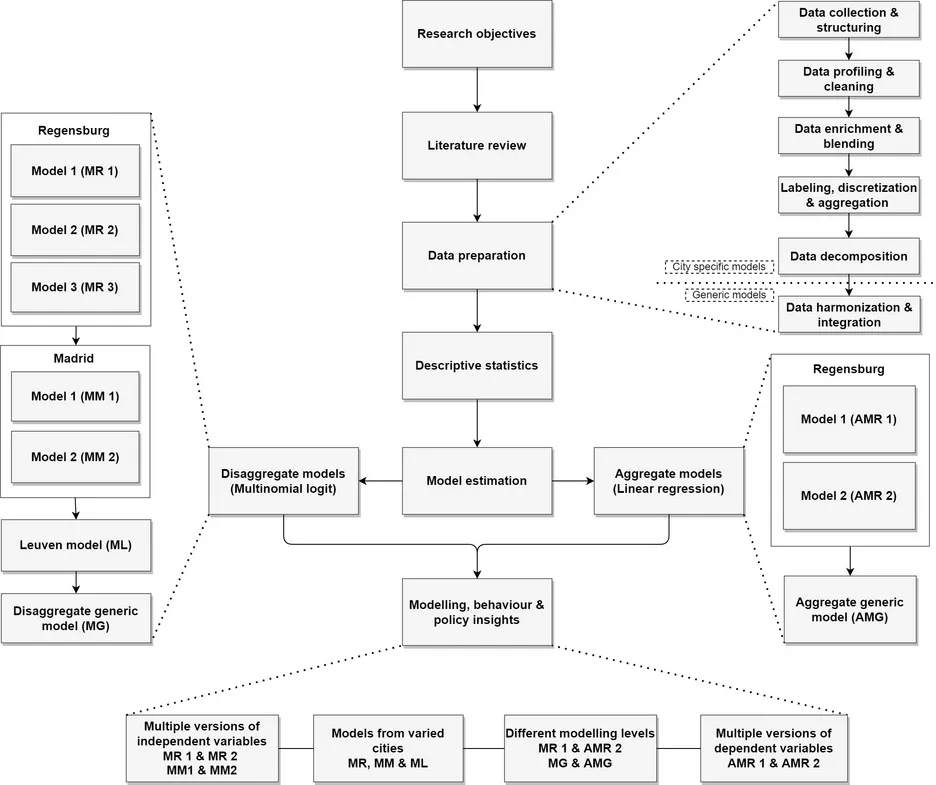
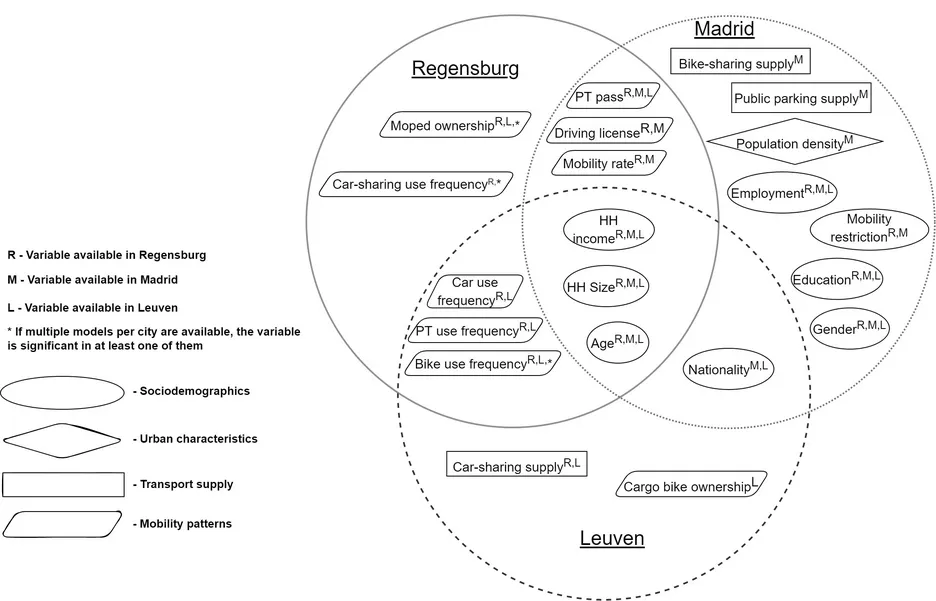
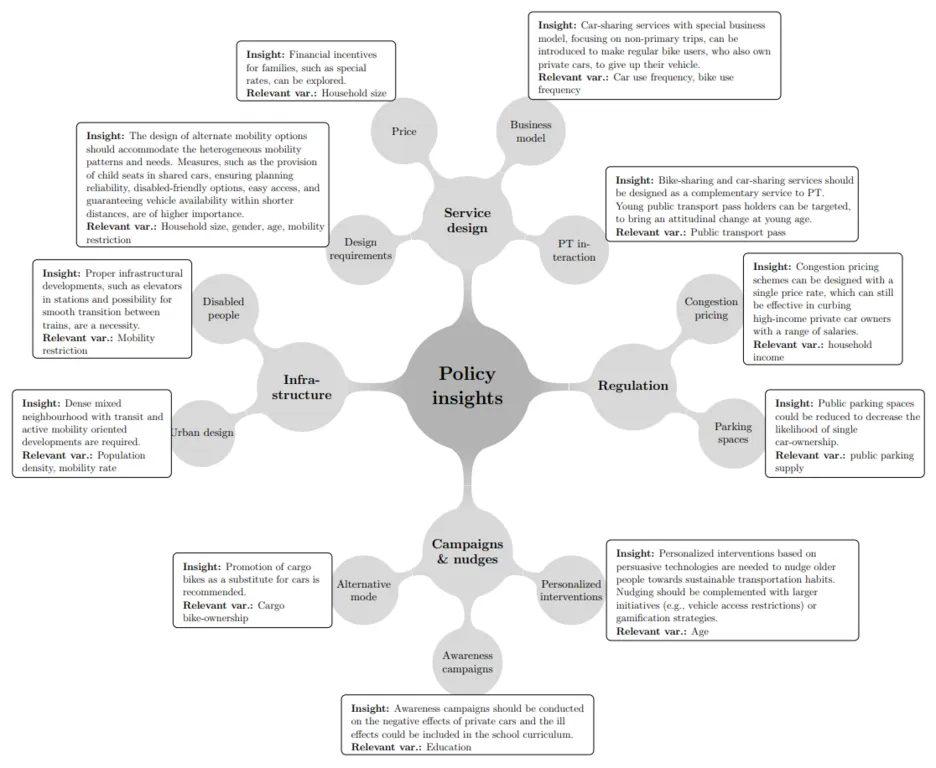
- Adapted & extended four-step approach for evaluating emerging mobility solutions
- Bus lanes result in mode shift from car to Public Transport (PT) & reduce emissions
- Autonomous shuttle for first-/last-mile complements PT in the area of operation
- Shared mobility reduces car-ownership. However, the mode shift pattern is of concern
- There is a need for proper integration between shared mobility services & PT
Publication: Narayanan, S., Arango, J. P. R., Frederix, R., Tympakianaki, A., & Antoniou, C. (2022). Can emerging mobility solutions complement public transport and lead to a sustainable future? Under review. URL: https://papers.ssrn.com/abstract=4219590.
A few snapshots from the study
